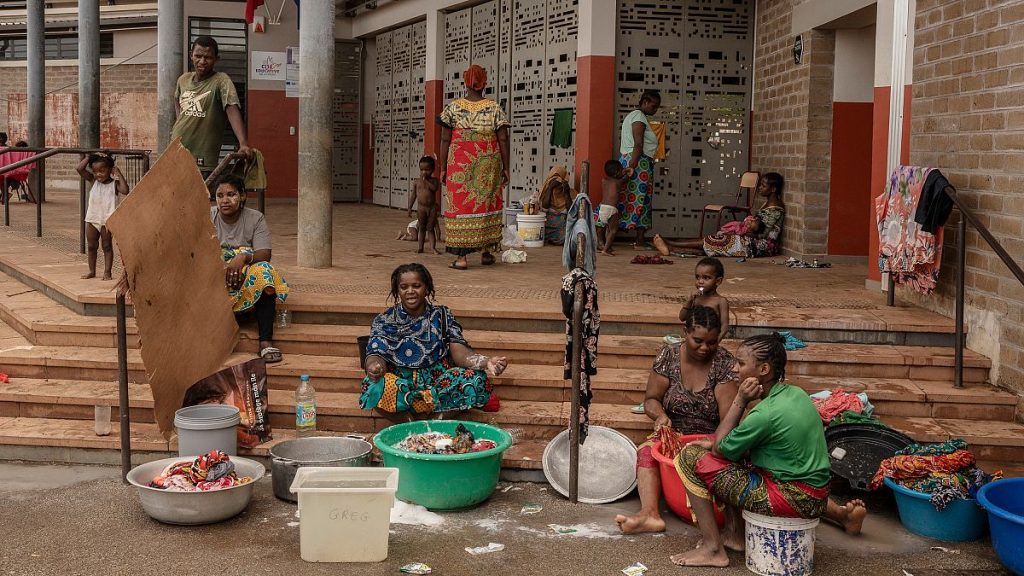The French nation paused on Monday, January 29, 2024, to mourn the victims of Cyclone Chido, a devastating storm that ravaged the island territory of Mayotte and parts of southeastern Africa in December 2023. A national day of mourning, a rare occurrence in France typically reserved for the passing of presidents or victims of terrorism, was declared by President Emmanuel Macron, underscoring the magnitude of the catastrophe. This marked a somber first – the first time a climate-related disaster prompted such a national response in the history of the Fifth Republic. At the Élysée Palace in Paris, the French flag flew at half-mast as a minute of silence was observed, a symbolic gesture of national unity and grief.
Cyclone Chido, the fiercest storm to strike Mayotte in nearly a century, left a trail of destruction in its wake. The official death toll stands at 35, with approximately 2,500 reported injuries. However, the true extent of the devastation, coupled with the challenging living conditions of many residents, including a significant migrant population, and the Islamic tradition of swift burial, suggests a significantly higher, yet tragically uncounted, loss of life. The widespread damage inflicted by Chido disrupted essential services, cutting off water and electricity supplies, severing communication lines, and forcing thousands from their homes, leaving them to grapple with the daunting task of rebuilding their lives.
Mayotte, an overseas department and region of France situated in the Indian Ocean, bears the unfortunate distinction of being France’s poorest territory. This economic vulnerability amplified the impact of Cyclone Chido, rendering the island even more susceptible to the storm’s destructive force. The precarious living conditions and limited resources available to many inhabitants exacerbated the challenges of recovery and underscored the existing inequalities within the French Republic.
Beyond Mayotte, Cyclone Chido extended its destructive reach to southeastern Africa, particularly Mozambique, where the reported death toll reached 94. The cumulative impact of the cyclone across the region highlights the far-reaching consequences of extreme weather events and the vulnerability of communities in their path.
In the aftermath of the cyclone, President Macron visited Mayotte to assess the damage firsthand and express solidarity with the affected population. His declaration of a national day of mourning served as a symbolic gesture of national unity and a recognition of the scale of the tragedy. However, this symbolic act was met with criticism from some quarters, particularly from Mayotte lawmaker Estelle Youssouffa, who accused the French government of neglecting the island’s plight.
Youssouffa pointed to the timing of a potential cabinet reshuffle, coinciding with the national day of mourning, as evidence of the government’s perceived indifference. Her public rebuke of the government highlighted the simmering tensions surrounding the disaster relief efforts and underscored the perceived disparity between metropolitan France and its overseas territories. This criticism brought into sharp focus the broader political context surrounding the disaster and the ongoing debate regarding resource allocation and the government’s response.
The national day of mourning for the victims of Cyclone Chido serves as a stark reminder of the increasing threat posed by extreme weather events in a changing climate. While the official acts of mourning symbolized national unity and grief, they also exposed underlying tensions and sparked a dialogue about preparedness, resource allocation, and the responsibility of governments to protect their citizens, particularly the most vulnerable, from the devastating impacts of climate change. The tragedy in Mayotte underscores the urgent need for comprehensive disaster preparedness strategies, resilient infrastructure, and a global commitment to mitigating the effects of climate change. It also highlights the imperative of addressing existing inequalities that exacerbate the vulnerability of marginalized communities to such events.














